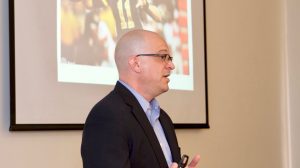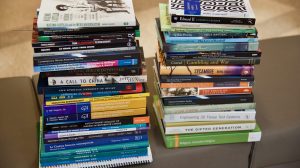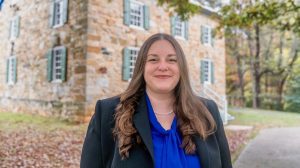College News

In a move designed to deepen and diversify its engagement in professional development for teachers, Charlotte Teachers Institute has formed a new educational partnership with Johnson C. Smith University to support classroom teachers in Charlotte-Mecklenburg Schools. Through CTI seminars led by UNC Charlotte and JCSU faculty, CMS teachers learn new content, work collaboratively with other teachers, and develop new curricula for their students.

The acts of professional athletes who have “taken a knee” during the playing of the national anthem during sport events reflect something more than a momentary message was being sent by the players, research by Dan Grano suggests. Grano, an associate professor in communication studies who researches public advocacy and sports communication and culture, says, “It’s a different moment in the history of sport.”

UNC Charlotte researcher Roslyn Mickelson is providing context for a debate about legislation to allow towns near Charlotte to create charter schools. She is drawing from her decades’ long research into segregation and re-segregation of schools and commenting in local and national media accounts.

Faculty authors in the College of Liberal Arts & Sciences at UNC Charlotte in 2017 edited and published 42 books that were diverse in topic ranging from language and culture studies to physics and optical science. Texts also included topics such as public relations, history, religious studies, and African American studies. The books included textbooks, research publications, novels, and other forms.

UNC Charlotte’s Steven Rogelberg is a pioneering researcher in the field of organizational science. In acknowledgement of his profound, international impact on the discipline, Germany’s Alexander von Humboldt Foundation has named him a recipient of its prestigious research award.

For couples seeking to overcome infertility, the process can prove emotionally and financially daunting. At the same time, those who care about them can struggle to know how to show support. A new documentary created by graduate students in a visual ethnography class in UNC Charlotte’s Department of Communication Studies offers insights to the couples and their loved ones.

The Helping Hand Project is a student-led and faculty-backed nonprofit organization that uses 3D printers to create recreational prosthetics for children, at no cost. These forward-thinking students are using their innovative, collaborative minds and the equipment in UNC Charlotte’s Makerspace in the College of Computing and Informatics to create the life-changing devices. Read more

UNC Charlotte’s Bank of America Alumni Network in December honored three distinguished individuals, including CLAS alumni, for their professional and community service achievements.

UNC Charlotte’s Bank of America Alumni Network in December honored three distinguished individuals, including CLAS alumni, for their professional and community service achievements. Read more

For the first time, researchers have evidence of exactly what dads are doing while moms are taking care of housework or tending to their child. A study by Jill Yavorsky, assistant professor of sociology at UNC Charlotte, and colleagues at The Ohio State University, found men were most often relaxing while women did housework or child care.

The Charlotte Museum of History has named UNC Charlotte alumna Adria Focht as its new president and CEO, effective Nov. 27. Focht comes to the museum from the Kings Mountain Historical Museum, where she was director and curator.

For the first time, researchers have evidence of exactly what dads are doing while moms are taking care of housework or tending to their child. A study by Jill Yavorsky, assistant professor of sociology at UNC Charlotte, and colleagues at The Ohio State University, found men were most often relaxing while women did housework or […]